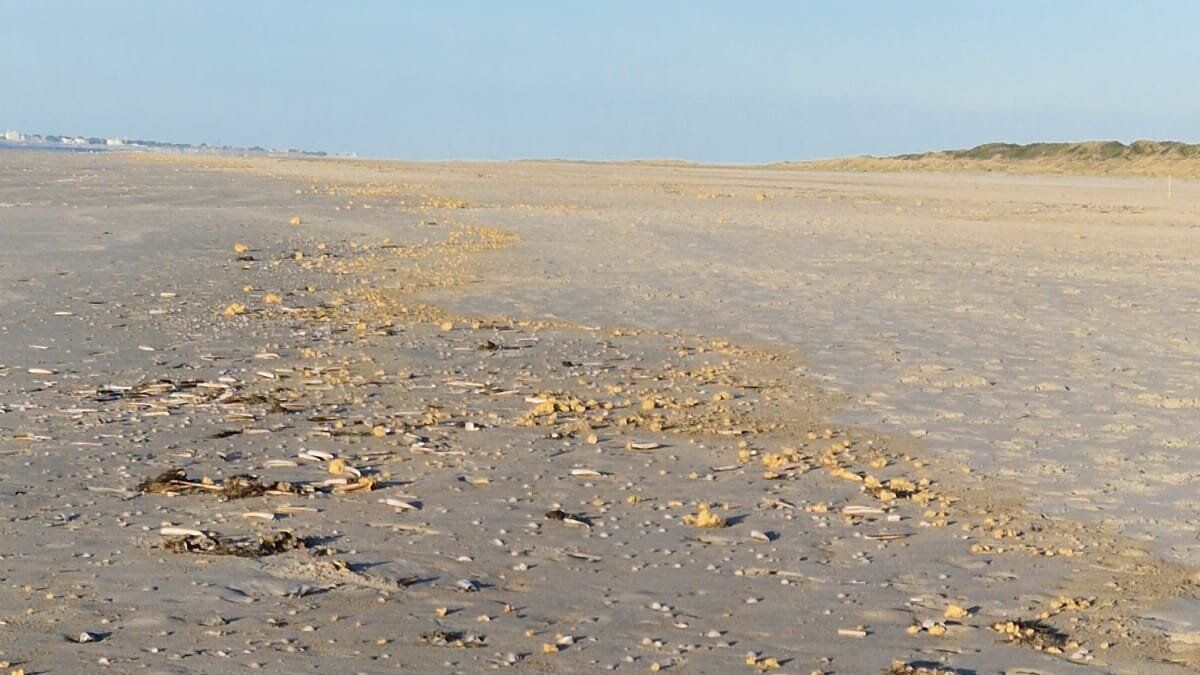Clean beaches
Small pieces of paraffin sometimes drift ashore. They are most often small and either yellow or white

This happens again and again and has ramifications for us all: Humans, animals and nature. Those who have lived close to the sea for a few years know that the sea occasionally washes peculiar objects up onto the beach in massive quantities: Plastic waste, shoes and razors, or even suspicious barrels with unknown contents. The German State Office for Coastal Protection (Landesbetrieb für Küstenschutz) has to examine what they contain each time this occurs. Paraffin is a particular type of floating refuse.
The most recent incident involving paraffin washing up on the beaches of Northern Germany happened at the beginning of September 2019. In Westerland on Sylt, paraffin washed ashore for eleven days straight. Residents of the island and guests diligently assisted in the effort to remove the refuse. The greatest contributor to the cleanup, however, was the community’s very own BeachTech 2800. Not only was the vehicle able to remove the paraffin faster and more efficiently than excavators and other machines – thanks to the ability to precisely sieve out the paraffin, the vehicle interferes only minimally with the sensitive sand ecosystem. Three containers, each containing 20 cubic meters of paraffin, were gathered up from the beach! The fallout from such pollution in areas of the Wadden Sea World Heritage region and all coastal regions worldwide are enormous. However, not only paraffin but also plastic waste is washed onto the beach again by the sea.
If this environmental waste is gathered up effectively from the sand by the use of beach cleaners, the unwanted floating refuse – whether paraffin, globs of oil, plastic or other trash – can be prevented from washing back into the sea in the form of tiny particles, where it turns into “fish food”. This means that BeachTech not only ensures visual cleaning results on the beach, but also provides efficient and costeffective maintenance of sandy beaches and environmental protection.
Background information
Paraffin Paraffin is contained in candles, chewing gum, cosmetics, cleaning agents, sweets and shoe polish. And it is a constituent of crude oil: In oil tankers, it becomes deposited on the walls of the tanks and pump hoses. The paraffin that washes up on beaches comes from ships that flush their tanks out while at sea. This type of cleaning is less expensive than cleaning at the port and is completely legal – provided that this is done outside the twelve-mile zone. The problem: Paraffin has negative effects on health and the environment. Large areas of the beach polluted by paraffin pose a great danger to birds.